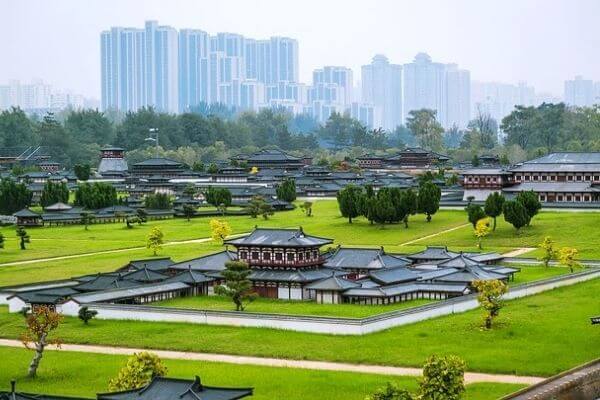
If you want to know how to obtain property rights relating to land and housing in Chinese cities, the Urban Real Estate Administration Law (城市房地产管理法, “the Law”) is a good start.
Related Posts:
- China's Legal Framework on Land Administration
- China's Legal Framework on Urban Land
- China’s Legal Framework on Rural Land
The land in China is divided into two types, the state-owned land located in urban areas and the land collectively-owned by rural communities in rural areas.
The Law stipulates how to obtain land use rights relating to the urban land, how to develop the land, and how to make a transaction on land and housing.
The Law was enacted in 1994 and was amended respectively in 2007, 2009 and 2019.
The most noteworthy parts are introduced below:
1. How to obtain the land use right of the state-owned land?
There are three ways:
(1) Granting: you may pay the government land a granting fee for the land use right, however, your right to use the land is valid only for a limited period. (Article 8)
(2) Allocation: the land may be allocated by the government free of charge and usually without a time limit when the land is necessarily occupied by the government, the army, urban infrastructure, public welfare undertakings, and the government-supported infrastructure in energy, transportation, water conservancy, etc. (Articles 23 and 24)
(3) Transfer: the land use right holder may transfer the right to others, who can continue to exercise the right for the rest of its effective term.
2. How long does the land use right usually last for when it has an effective term?
The effective term of the land use right shall be determined by the State Council. (Article 14)
According to the intended use of the land, the State Council has specified the maximum number of years for land use rights under the following circumstances[1]:
(1) Seventy (70) years for residential purposes;
(2) Fifty (50) years for industrial purposes;
(3) Fifty (50) years for the purposes of education, science, culture, public health, and physical education;
(4) Forty (40) years for commercial, tourism and recreational purposes;
(5) Fifty (50) years for comprehensive utilization or other purposes.
When the effective term of land use right expires, you need to apply to the government for an extension of the term. Upon the approval of the government, you need to pay the granting fee for the land use right again before you obtain the extended term of land use right. However, if the land involved in your application is residential land, the term of the land use right can be extended automatically without application.
3. How to obtain the land granted by the State?
The government may grant the land use right publicly by means of auction, bidding or agreement between the parties concerned.
For the land used for commercial, tourism, recreational purposes and the construction of luxury housing, where conditions permit, the granting shall adopt the means of auction or bidding; where conditions do not permit and it is impossible to adopt the means of auction or bidding, the government may grant the land use right by the means of agreement. (Article 13)
4. How to transfer the land and housing?
China adopts the principle of integration of land and housing. If you are entitled to the ownership of a house, meanwhile you will have the right to use the land on which the house is built. If you want to transfer the ownership of the house, you need to transfer the right to use the said land at the same time. (Article 42)
5. Can you mortgage the house?
You can mortgage the house, but the land use right of the land on which the house is built should be mortgaged together. (Article 48)
6. Can you rent the house out?
You can rent the house and collect the rent, but the lease contract requires record-filing with the government. (Articles 53, 54)
[1] 《中华人民共和国城镇国有土地使用权出让和转让暂行条例》
Cover Photo by Night Glow(https://unsplash.com/@nightwww) on Unsplash
Contributors: China Laws Portal Team









